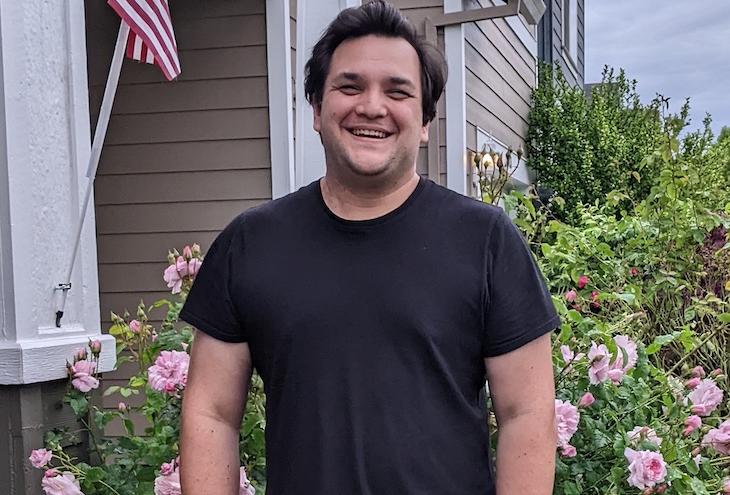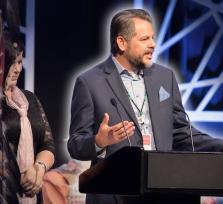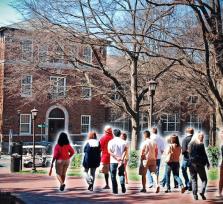Dr. Benjamin Parker recently became the first Indigenous student to earn a PhD in mathematical sciences from Portland State University. He joins a list of only 37 Indigenous people with a doctorate in math. While a career in academia supporting students as an ombudsman may be in the cards for the future, Parker is currently content in his new role with Intel as a software research and development engineer.
His doctoral work focused on algorithmically addressing problems in fiber optics, and the concordance with studies on electricity and magnetism led him toward his current work: the mathematics behind circuits. “This is actually something I came into after I graduated,” he explains. “One of my advisor’s former students works at Intel, and their team was looking for a new member.”
Parker is a member of the Squaxin Island Tribe in Washington state with Turtle Mountain Ojibwe, Cree, and Shoshone-Bannock descent. The present-day Squaxin Island tribal homelands, centered in Kamilche, Wash., host well-known local artists and hosted the Intertribal Canoe Journey in 2012. Typically, this event is hosted by a different tribal nation each year, and guest canoes are often brought in from around the country, like the Chumash of California, and the world, including New Zealand.
Growing up in King County, Wash., Parker moved between suburban Auburn and urban Seattle but always returned to the Turtle Mountain Reservation in North Dakota where his mother grew up. His family worked in the medical field and social work. “Both sides of my family have had a big influence on the paths that I’ve chosen and have pushed me to go into either engineering or medicine.” Parker says. “My family and teachers always encouraged me to aim high. Even when I struggled. I’m thankful that they’ve been supportive in whatever I do — and they still are.”
With the assistance from his high school in mapping out potential colleges and help from a cousin who is an alumnus, Parker was accepted to Dartmouth with relative ease and began to pursue an engineering degree. Looking back with hindsight, he has this advice: “Even if applying to a place feels like a roll of the dice, always go for it.”
While beginning college may be pain free for some, getting through is an entirely different struggle. Many obstacles lie in wait, but facing and overcoming them can facilitate deep learning and growth. When Parker was navigating his first year at Dartmouth, the distance from home and family paired with the unexpected rigor of engineering studies proved to be formidable stumbling blocks.
“Homesickness was definitely hard to deal with at first, but the bigger challenge was adjusting to being a different kind of student. I really struggled my first year and ended up failing one of the gateway classes to an engineering major. I had to reassess and figure out what to do from there, and I eventually ended up as a math major,” he says. Parker points out that even if an experience like his makes it hard to keep going in the moment, ultimately it’s a roadblock you can get past — it doesn’t define your ability or self-worth.
Graduate school can present even more challenges than the undergraduate experience. “Grad school is a completely different world,” he says. “The only similarity is that at some point, you’re taking classes, possibly with exams and projects. Otherwise, the coursework is preparing you for your comprehensive exams and research.”
The most important assets underpinning Parker’s success in meeting the challenges of grad school were perseverance and support from family and friends. “I didn’t develop this success on my own,” he says. “I had a huge support network to lean into, and I couldn’t have done this without them.”
Further support came from student groups focused on Native American success, such as the Native American House at Dartmouth, Native Americans at Dartmouth (NAD), and AISES at Rochester Institute of Technology and Portland State University. “AISES has been helpful in developing new friendships and meeting other Native nerds who are passionate about their work and interests,” Parker explains. “Every conference I’ve been to has been a lot of fun, and AISES has helped me build a sense of community with other people who know the struggle of graduate school. It’s been a big part of helping me know that I wasn’t alone as I made my way through my program.”













